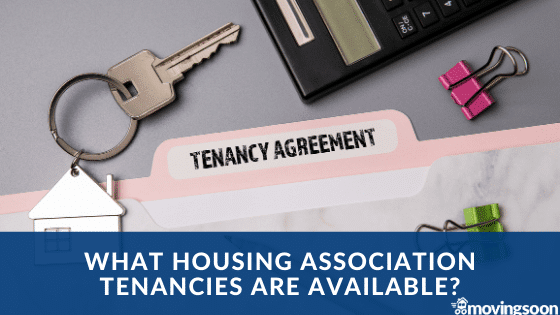Getting a tenancy with an affordable housing provider such as a housing association? What types of tenancies do they do offer, how much will I have to pay and how long will it last, may be some of the questions you are wanting to find the answers for. We have answered these and more questions below in detail.
What housing association tenancies are on offer?
Housing association tenancies include starter tenancies, assured short hold tenancies, longer tenancies and lifetime tenancies.
Starter tenancies
New housing association tenants may be offered a starter tenancy. These usually last 12 months and act like a ‘trial’ period.
You become an assured or fixed term tenant after 12 months, unless your housing association has either:
- Started to evict you
- Or extended your starter tenancy
After your starter tenancy (or initially in some cases) you can be offered either;
An assured tenancy meaning you can normally live in your property for the rest of your life and have long term tenancy rights. This can also sometimes be known as a ‘lifetime tenancy’
or
a fixed-term tenancy, a tenancy that usually lasts for at least 5 years. At the end of this fixed term, your landlord will decide whether it’s renewed. A fixed–term tenancy is also known as an assured short-hold tenancy.
Do Housing Associations charge a deposit to rent a property?
Housing associations do not typically charge a deposit, especially for social rent. Some Housing Associations may ask for advance rent (usually 1 week) but please note, this is not a deposit. There may be occasions where housing associations do charge a deposit, but they will typically be for any market rent properties. There are also deposit protection schemes that housing associations may use instead of asking for an upfront deposit.
Council housing, social rented housing, or housing association homes are all classed as affordable rented homes They are usually 80% of local market rents and are generally managed by housing associations (registered providers) or Council’s. For example, if the full market rent is £400 per month, eligible affordable housing applicants will pay £300 per month. Some affordable rented homes are let at lower than 20%; these are known as social rents.
What fees are chared for Housing Associations tenancies?
Housing Associations do not tend do charge any fees for prospective tenants, ie there is usually no deposit or admin fees that tenants have to pay.
There may be other charges if Shared Ownership or leasehold properties are involved, but for general rent there are not.
How long does a tenancy last with a Housing Association?
How long a tenancy lasts depends on which type of tenancy you have. Your behaviour in your property can also affect how long your tenancy lasts. If a landlord thinks that you are not behaving correctly or treating the property right, they could end your tenancy early.
What rent can you afford to pay?
As a general rule, many say that you should spend around 30% of your salary/wage on rent. According to the ONS, in 2020 the average UK salary was £38,600 for a full-time role(pre tax). If we were to base 30% rent on this we would be looking at spending no more than £11,580 per year or £965 per month.
However, millions of people in the UK do not earn anywhere near to the UK average, so if we based our calculation of the National Minimum wage and the average working week of 37.5 hours, the prices would look very different. The minimum wage will rise on April 2021 so we are basing our findings from that. The wage will rise to £8.91 meaning the yearly salary for those on NMW will be £ 17,374.50 pre tax. The monthly wage should work out at £1,447.88 meaning that 30% of this for rent would be £434.36.
Are you entitled to any help with housing benefit payments?
You can find out if you are eligible for universal credit by using the eligibility calculator on the government website.
Universal Credit is a payment to help with your living costs. People tent to pay it monthly – or twice for some people in Scotland.
You may be eligible if you’re on a low income, out of work or you are unable to work.


